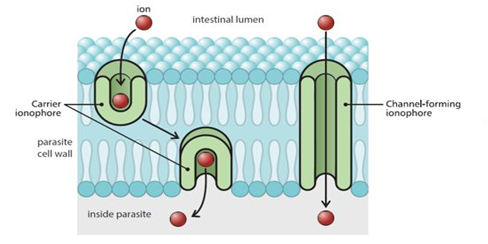Coccidiosis, caused by protozoan parasites of the genus Eimeria, is still one of the most widespread and difficult to manage poultry diseases, causing considerable economic losses especially in the broiler industry. Intensification of commercial poultry production has relied on effective prophylactic control of coccidiosis. The sequential introduction of sulfa-drugs, synthetic anticoccidials and then ionophores changed this, facilitating rapid increases in the scale and intensity of poultry production. Current levels of poultry production would not be sustainable in the absence of effective anticoccidial control. Synthetic compounds Synthetic compounds were the first…
Month: September 2020
Feed Sanitation
Heat Treatment as a Method for the Decontamination of Poultry Feeds Colin Russell, Consultant Microbiologist INTRODUCTION The traditional methods of reducing microbial contamination in feed raw materials have been compromised within the EU recently with the ban on the incorporation of formaldehyde as a feed additive (PT4). Within the EU this is being linked to an increase in Salmonella isolations. With the potential for reduced chemical use to control microbial contamination in feed to be rolled out in other countries it is important that suitable alternative methods to control contamination…
Effects of Phytogenic Feed Additives on Bird Health
Andreas S. Muller, Senior Manager R&D Poultry, Delacon Biotechnik GmbH. From January 1st, 2006 onwards in the European Union (EU) antibiotics were banned as growth promoting feed additives. As the first and currently single Asian country the Republic of South Korea followed the EU example in 2011. It can be expected that numerous further big countries in the world will also remove feed antibiotics within the next few years. The protection of consumers health is the main reason for these decisions. However, the removal of antibiotics at the same time…
BIOMIN Announces Positive EFSA Opinion for FUMzyme® for Fermenting Feed in All Species
Leading animal nutrition firm BIOMIN has reached a key step in the EU registration of FUMzyme®, the only commerciallyavailable mycotoxin-deactivating enzyme and component of Mycofix®, for application in fermenting feed including silages. On 21July 2020, the European Food Safety Authority (EFSA) Panel on Additives and Products or Substances used in Animal Feed (FEEDAP) published a favorable Scientific Opinion on the safety and efficacy of FUMzyme® in fermenting feeds in all species. FUMzyme®,a fumonisin esterase, is apurified enzyme that detoxifies fumonisins –a category of mycotoxins produced by Fusarium fungi— into non-toxic…
Effects of phytogenic feed additives on bird health
Andreas S. Muller, Senior Manager R&D Poultry, Delacon Biotechnik GmbH. From January 1st, 2006 onwards in the European Union (EU) antibiotics were banned as growth promoting feed additives. As the first and currently single Asian country the Republic of South Korea followed the EU example in 2011. It can be expected that numerous further big countries in the world will also remove feed antibiotics within the next few years. The protection of consumers health is the main reason for these decisions. However, the removal of antibiotics at the same time…






